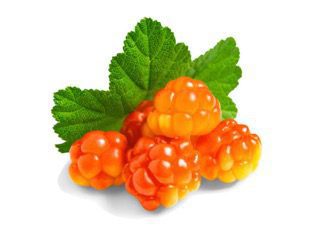

Cloudberries are a safe and nutritious food option for dogs. They contain vitamins, minerals, and healthy fatty acids that support a dog’s overall health and immunity.
Cloudberries offer numerous health benefits for dogs. They contain vitamins C, A, E, and phytonutrients that strengthen a dog’s immune system. Additionally, they are rich in vitamins B3 and B2, folic acid, and fiber, which promote healthy blood circulation, red blood cell production, and digestion. The omega-3 and omega-6 fatty acids found in cloudberries also protect against heart diseases.
While cloudberries are generally safe for dogs, excessive consumption may lead to increased stomach acidity. As with any new food, it’s important to introduce cloudberries gradually and monitor your dog’s reaction.
Cloudberries can be given to dogs as a treat or meal topper, either fresh or dried. As with any food, it’s important to consider portion sizes and ensure that cloudberries are not the sole source of nutrition in your dog’s diet.
Cloudberries, also known as bakeapples or knotberries, are a fruit that is safe for dogs to consume. They are native to cold regions such as Russia and Scandinavia, and are commonly used in jams, jellies, and alcoholic beverages. Cloudberries offer several health benefits for dogs, including boosting immunity, promoting healthy blood and digestion, and protecting against heart diseases. However, excessive consumption of cloudberries can lead to increased stomach acidity, so introducing them gradually is important.
Cloudberries can make a tasty and nutritious treat for dogs. They can be given fresh or dried, and used as a meal topper or occasional snack. It's important to consider portion sizes, and make sure that cloudberries are not the sole source of nutrition in your dog's diet. If your dog doesn't seem to enjoy cloudberries, other berry options that are safe for dogs include blueberries and strawberries.
Have you ever tried giving your dog cloudberries? What was their reaction? Do they have a favorite fruit or vegetable? Remember to always consult with your veterinarian before introducing any new food to your dog's diet. In the meantime, give your furry friend a pat and a treat for being such a good companion.